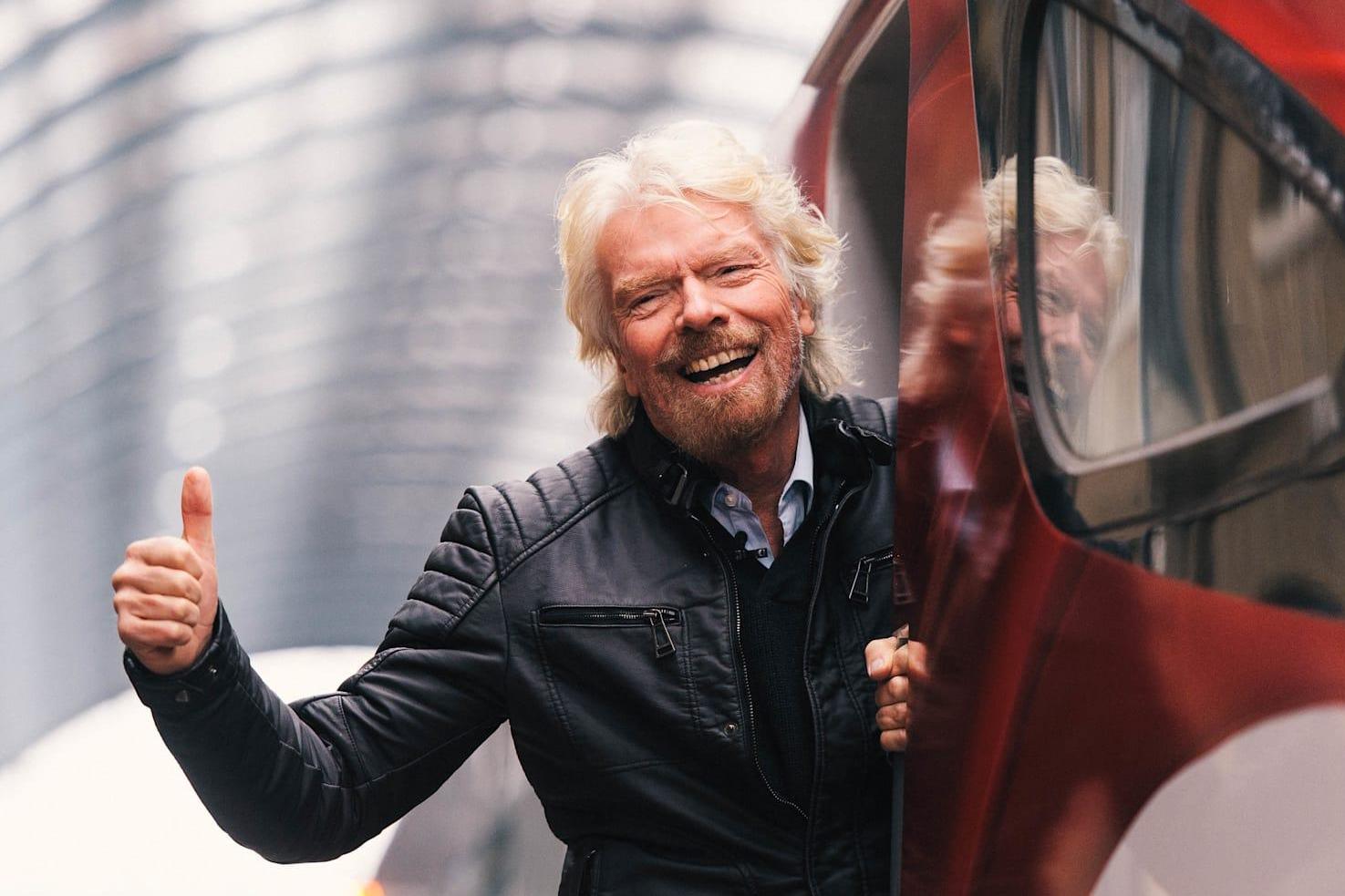Virgin Trains is a lesson in how to run a railway successfully
The man who pays his way: Sir Richard Branson’s company is stripped of its franchise this weekend

Your support helps us to tell the story
From reproductive rights to climate change to Big Tech, The Independent is on the ground when the story is developing. Whether it's investigating the financials of Elon Musk's pro-Trump PAC or producing our latest documentary, 'The A Word', which shines a light on the American women fighting for reproductive rights, we know how important it is to parse out the facts from the messaging.
At such a critical moment in US history, we need reporters on the ground. Your donation allows us to keep sending journalists to speak to both sides of the story.
The Independent is trusted by Americans across the entire political spectrum. And unlike many other quality news outlets, we choose not to lock Americans out of our reporting and analysis with paywalls. We believe quality journalism should be available to everyone, paid for by those who can afford it.
Your support makes all the difference.As a spin-off from a music business, Virgin Atlantic seemed a fairly wacky idea. But there was at least something rock’n’roll about the upper class “bubble” on Mr (as he was then) Richard Branson’s transatlantic airline.
As a spin-off from a music and airline business, Virgin Trains looked positively weird. While a Boeing 747 was (and is) cool, yet another delayed arrival at Watford Junction, Warrington Bank Quay or Wigan Northwestern had zero appeal.
Since you were doubtless very young in the mid-1990s, let me tell you how the railway looked and felt to its users. A government that championed the motor vehicle had been in power since 1979. Through the Sixties and Seventies, rail passenger numbers had slumped steadily due to the wholesale closure of lines and stations, the increase in car ownership and the slow decay of British Rail.
To the lasting credit of some persuasive railway visionaries, the decline had been staunched by three bold ventures: the High Speed Train, which brought 21st-century speeds to the UK in 1976; Thameslink, which introduced cross-London trains in 1988; and electrifying the East Coast main line to Leeds and Edinburgh during the last years of the Thatcher government.
Around two million journeys per day were enjoyed – or, more usually, endured.
Despite widespread public hostility to rail privatisation, John Major’s government pressed ahead with selling off the nation’s infrastructure, rolling stock and the rights to run a railway. The network was carved up into franchise-sized portions, each sold off to the highest bidder – or those demanding the lowest subsidy.
Most of the franchises were awarded to existing transport enterprises or management buy-outs. The odd one out was Virgin Rail Group, created by Branson with the bold idea of bringing some magic to train travel.
The start was hardly auspicious. Virgin Trains had some of the oldest rolling stock on the railways. Branson’s company signed a deal with the infrastructure owner, Railtrack (long since renationalised) to upgrade the West Coast line to allow for 140mph trains by 2002.
We are still waiting for such a turn of speed; the upgrade scheme unravelled expensively. Network Rail rescued the project, but the line speed is restricted to 125mph.
But while Virgin Trains (and long-suffering passengers) were waiting for the promised improvements to be completed, the company was busy transforming the image of long-distance rail travel. As with his other enterprises, Sir (as he became in 2000) Richard started with the staff: empowering and inspiring them to deliver decent service to the customers who pay their wages.
Once the tracks were in good enough condition to deliver the promised faster and more frequent services, Virgin Trains piled on the passenger numbers. Three times more travellers use the West Coast main line than at the time of privatisation. And whatever your view of firms extracting profits from running trains, Virgin is the exemplar of how to do it with panache.
Two virtues mark the company out: the sense that this is an organisation devoted to making life better for the traveller, and superb staff who work with pride and professionalism.
From this weekend, Virgin Trains is deleted from the timetables. Sir Richard Branson’s company has been stripped of its franchise in a row with the Department for Transport (DfT) over pension provisions.
The incumbent train operator was happy to pay contributions for its current workforce, but felt that ill-defined responsibility for part of the pensions deficit across the rail industry was a risk too far in these uncertain times.
The last Virgin Trains northbound departure (to Wolverhampton, if you’re tempted) leaves London Euston at 9.42pm on Saturday, and the final arrival in the capital is at 11pm the same evening.
From Sunday, Virgin Trains will find its universe reduced to a concise Florida network comprising Miami, Fort Lauderdale and West Palm Beach.
Here in Britain, the onboard teams, the platform staff and back-office managers will continue to deliver excellent service when they wear the new uniforms of Avanti – the brand for the partnership involving FirstGroup and the Italian state railways, Trenitalia. But the spirit and success of Virgin Trains will be a hard act to follow.
Join our commenting forum
Join thought-provoking conversations, follow other Independent readers and see their replies
Comments